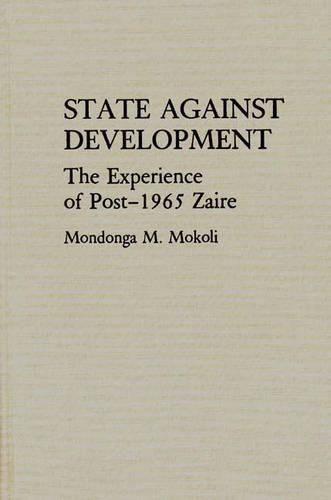
State Against Development: The Experience of Post-1965 Zaire
(Hardback)
Publishing Details
State Against Development: The Experience of Post-1965 Zaire
By (Author) Mondonga Mokoli
Bloomsbury Publishing PLC
Praeger Publishers Inc
17th September 1992
United States
Classifications
Tertiary Education
Non Fiction
Development economics and emerging economies
Agriculture, agribusiness and food production industries
338.96751
Physical Properties
Hardback
168
Description
This study evaluates the state-initiated policies in post-1965 Zaire and their impact on the Zairean people. The author ascertains the overt and underlying relevancy of the priority that the state has accorded the agricultural and rural sector for socio-economic development, and he examines the indicators provided by conventional agricultural and rural development theories. These indicators show that the sector has not received sufficient financial support and has lacked the political will to obtain the assigned goals. Thus, the author claims, the basic objective of the agricultural and rural policy has been political, not socio-economic. The failure of the agricultural policy, the study suggests, is rooted in the nature and role of the state. In post-1965 Zaire, the state is a socialist political superstructure standing on a capitalist socio-economic infrastructure. Both co-exist with the traditional forms of production in the Zairean social structure. This incompatible juxtaposition of different systemic components engenders structural conflicts which work in favour of the few who hold key state offices. The study calls for the mastery of the state as the sine qua non without which Zaire will most likely remain in its present state of national and rural socio-economic underdevelopment.
Author Bio
MONDONGA M. MOKOLI is Associate Professor of Sociology and Director of the Interdisciplinary Center for Development at the University of Lubumbashi, Zaire. He is the author of several articles and the forthcoming book The Transition Toward the Third Republic of Zaire: Its In-Depth Meaning.
